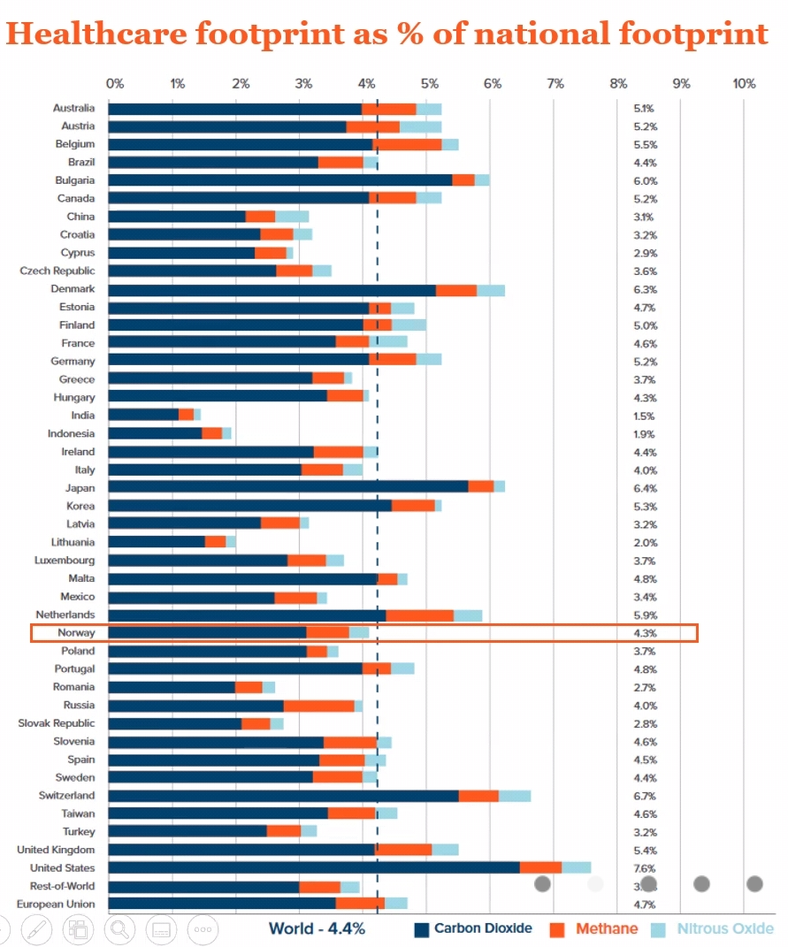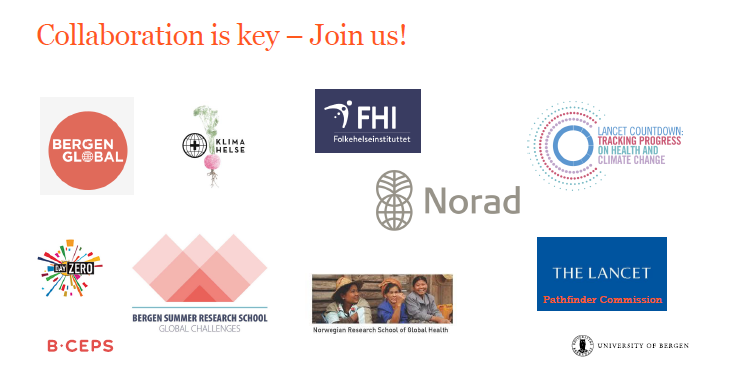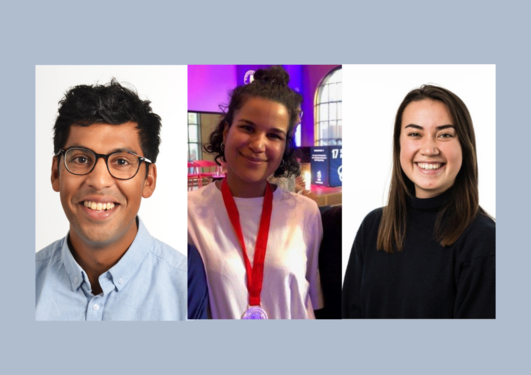Decarbonising Healthcare Workshop
This workshop was organised by BCEPS student researchers Anand Bhopal, Emily McLean and Sara Soraya Eriksen as part of ‘Day Zero’ at the 2021 Bergen Sustainable Development Goals (SDG) Conference.

Hovedinnhold
Background Information
In 2009, the Lancet Commission on Climate Change and Health described climate change as the "biggest global health threat of the 21st century". Yet, in the midst of societal efforts to rapidly decarbonise, health has been largely adrift of wider discussions. Given healthcare emissions constitute around 5% of global emissions, this cannot continue. In October 2020, the National Health Service in England became the first healthcare system in the world to commit to becoming carbon neutral. In Norway, our healthcare-related carbon emissions are similar to those in England. It is time that we got our house in order too.
Decarbonising Healthcare is a joint BCEPS-CET (Centre for Climate and Energy Transformation) collaboration and this Day Zero workshop at the 2021 SDG Conference Bergen was its first event after securing funding at the beginning of the year.
SDG Conference - Day Zero Workshop
This action-orientated session attracted participants from across Norway and beyond, including Germany and Ghana, and aimed at exploring pathways to reducing healthcare’s carbon footprint.
After a short overview of the field (see presentation below), participants were divided into break-out rooms and given the opportunity to engage in advocacy and research streams. We were delighted with the quality, levels of engagement and ideas generated in the discussions.
Research Stream
In the research stream, participants highlighted the importance of converting climate impacts into health metrics which are easier to understand, and more research on the ‘co-benefits’ of low-carbon interventions reducing medicines use and improve public health. ‘Could an ethical review include a climate impact section?’ asked one participant – one for us all to consider?
Advocacy Stream
Numerous ideas also emerged in the advocacy stream. Participants felt it was crucial to engage health professionals early on in any work to decarbonise healthcare and to draw on the expertise of existing climate/sustainable health officers where they exist. We also discussed the importance of building a well-informed medical student lobby through including climate change on the medical curricula. This issue was recently discussed by BCEPS MD PhD candidate Sara Eriksen in Khrono, an independent news channel for higher education and research. The article is in Norwegian and was published on 12 January 2021: Medisinske konsekvenser av klimaendring – på medisinske studieplaner? [English: "Medical consequences of climate change - on medical studies?")
Concluding Remarks
In the final part of the workshop, we described plans for our ‘Decarbonising Healthcare’ project and were delighted to build on our network of people committed to low-carbon healthcare. We look forward to continuing collaboration with workshop participants in the weeks and months ahead.
Project email: gronthelsevesen@gmail.com




